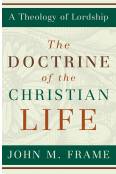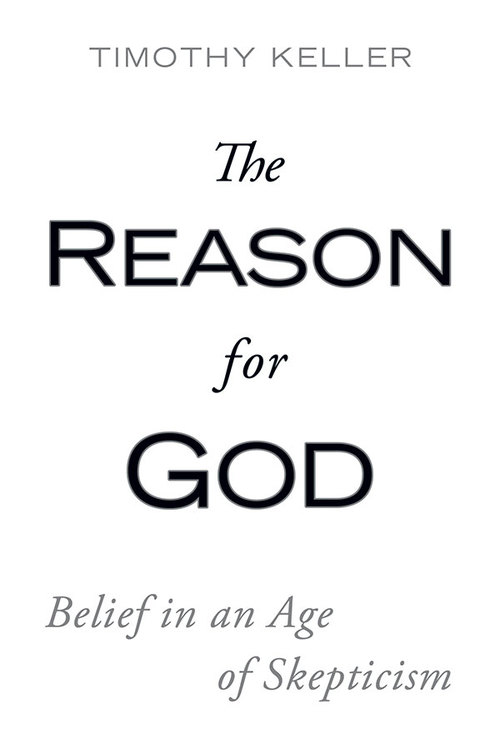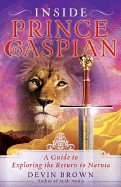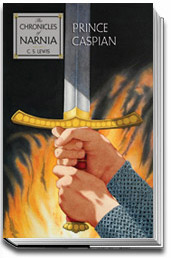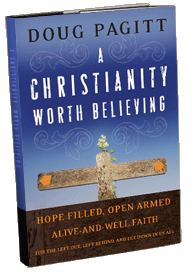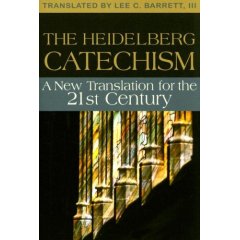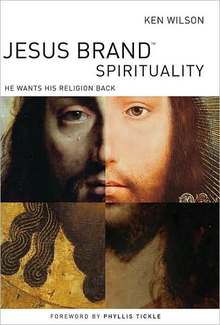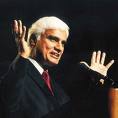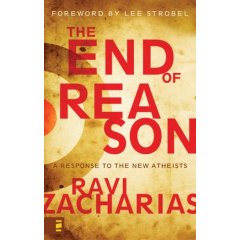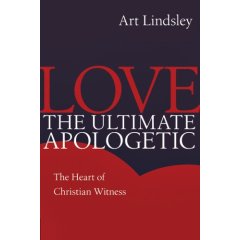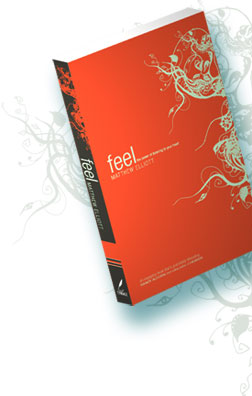 Life Is More
Life Is More
5n2
I don’t know exactly when it happened for us, but a creative, thoughtful and very friendly youth leader in Missouri became a friend of Hearts & Minds. Ethan Bryan calls to check up on us, chats with our staff, prays for our family. Significantly, it seems, he asks us what books he should be reading, and pays close attention to my BookNotes blog reviews.
I don’t know exactly when it happened for him, but this creative, thoughtful, and very curious follower of Christ, who also happens to be a church staff member doing youth work and leading worship, became more intentional about relating his seminary training, youth min experience and Hearts & Minds reading regimen to his deepened discipleship, his work and ministry, especially around issues of social concern and public justice. He seems to have ramped up his faith and fidelity, taking risks in joy and hope and contagiously getting others to join in.
You might imagine—if you’ve walked this road at all—that Ethan’s zealous (if gentle and kindly) proclamations of the holistic Lordship of Christ and the creation-wide politics of Jesus brought him renewed energy for sermons, Bible studies, prayerfulness, mission trips and service projects within the context of his own discipleship and his work in disciple-making. He redoubled his work to make clear Christ’s call to resist the idols of the culture of materialism and invited others to be involved in social service and public protest. He was starting to form the character and concerns of his youth and those with whom he worshipped into agents of social transformation. Reading Shane Claiborne (The Irresistible Revolution, Jesus for President) and Walsh & Keesmat (Colossians Remixed) Ron Sider and Gary Haugen, he increasingly found his ministry moving in new directions. He mentored teens in their efforts to aid the homeless, raised money for a local shelter. He worked with a very, very sharp young gal who started her own organization to work against sexual slavery a la Loose Change to Loosen Chains (watch out Zach Hunter! Sally Rymer’s Clapham Sect: Phase II for student abolitionists is pretty great.) Ethan was kept up at night with tears for the outcast, struggled with matters of personal integrity—how to move downwardly mobile when one has huge higher education debt? What does it look like to be a suburbanite if God’s intentions for the outcasts are your dream? How do we balance the pastoral and prophetic, in our own lives, and in youth work? How can we be outspoken leaders and yet remain truly humble?
And, as you might also imagine, there have been some criticisms. Why does he teach the youth this stuff? Is this safe? Why be so critical of the American way of life? Is being anti-war really part of the gospel of Christ? And, of course, these concerns are taken to heart, weighed and pondered; as any of us who have heard such remarks know, it is draining thinking it all through. I don’t know if I sent it to him, but others taking similar halting steps towards the poor, from evangelical backgrounds that may not have opened up the Biblical teaching of social justice and political advocacy, are described in Justice in the ‘Burbs by Will and Lisa Sampson. It helps tell the story, would be a great ally for your journey. Our new mail-order pal could have been a character in that book.
With steadfast gentleness he and his wife are raising their daughters to be kids who care about their world. He and his wife and youth group aren’t described in Tom Sine’s The New Conspirators: Creating the Future One Mustard Seed at a Time, Tom’s recent collection of fabulous examples of all kinds of new ministries, new communities and new visions, but they could be. Again, Ethan isn’t alone–there is a movement among the younger generations, a global story of church renewal linked to cultural awareness and social change; it is a story Sine tells well. As I write, I’m looking at a lovely drawing Ethan’s very young child did for us, a crayon drawing of what she imagines our bookstore is like (she knows her daddy orders books from us, books like the one by Tom Sine that her family could well be in!). Other pictures she sold at a showing at their local coffeeshop to raise funds for the needy. What a fun family to know—new conspirators, indeed!
* * *
I tell you all this so you might pray for us as we try to nurture and influence customers who become friends, readers who become leaders. And that you, too, might be inspired to continue to ponder in real terms how to creatively live out the ideas and challenges in the books you read. Knowledge can puff up, the Bible says, and as booksellers we worry, on occasion, if we are just adding to the “words, words, words” problem of a culture weighed down with information overload. My friend Steve Garber’s fine book The Fabric of Faithfulness: Weaving Together Belief and Behavior comes to mind as the best book on this very matter; how does one learn in such a way as to live what one believes, to nurture a worldview as a way of life, for life? Or, Dennis Hollinger’s fabulous Head, Heart, Hands: Bringing Together Christian Thought, Passion and Action, which asks how discipleship in the ways of Christlikeness is actually formed. It is, of course, multi-faceted: a matter at least of content and knowledge, affections and feelings, and actual living and doing. That is surely one of the most holistic views of faithful learning we’ve seen, and it reminds us to pray for our customers, that they might feel deeply and live faithfully the ideas that they learn in the books we sell. Watching our friend Ethan from a distance and his leadership in the areas of social concern has been a real privilege as a bookseller.
* * *
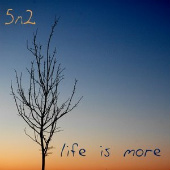 I tell you this, though, for another big reason (finally, the big point): Ethan has released an album of folk-pop songs that have emerged from his journey. We are pleased to tell you about it, ask that you consider buying it (we’ve got to help him recoup the dough spent in this risky step of audacious faithfulness.) He really felt God calling to do this, his first recording ever, and it seems to be a Spirit-led event. He has released this new CD with some of his musician friends, under the mysterious name 5n2. The album is called Life Is More. You can visit their website, here.
I tell you this, though, for another big reason (finally, the big point): Ethan has released an album of folk-pop songs that have emerged from his journey. We are pleased to tell you about it, ask that you consider buying it (we’ve got to help him recoup the dough spent in this risky step of audacious faithfulness.) He really felt God calling to do this, his first recording ever, and it seems to be a Spirit-led event. He has released this new CD with some of his musician friends, under the mysterious name 5n2. The album is called Life Is More. You can visit their website, here.
Life is More is, for starters, one of the most interesting contemporary Christian music concepts in quite a while. Each song on the CD is inspired by (if not exactly about) a certain ministry/cause/project which Ethan and his youth support. Any monies raised by selling this disc will support these agencies and the CD liner notes point listeners to the issues and groups behind each song. What a great idea!
If one is attentive to books like, say, Colossians Remixed: Subverting the Empire you can see the ideas in the songs of Life is More. The idea that we are to bear the image of God, resto
red to us in Christ, is a theologically underpinning of Ethan’s critique of the ubiquity of corporate branding and the sweatshop economy that supports many multi-national products and their ads. One doesn’t have to read the anti-globalization handbook No Logo or Sam Van Eman’s Christian critique of advertising, On Earth as it Is In Advertising: Moving from Commercial Hype to Gospel Hope to understand the first line of the first song:
I will not your billboard be
Carbon-based commodity
Spinning myths, consuming greed
Oh, I will not your billboard be
Walking ads for all to see
That song alone is worth the price of the recording, if you want to discuss this kind of stuff with a small group, especially a youth group.
Okay, though, let’s say it: I think the line “I will not your billboard be” is clumsy, cheesy even, although my very literate 25 year old disagrees. The poetic quality of some of these lyrics is a touch sophomoric. Perhaps that is perfect for, uh, sophomores. (He’s a youth worship leader, recall.)
Life Is More is not great, amazing art; the poetry will not endure like Dylan, Bob or Jacob. He’s no Bruce Cockburn, he doesn’t turn a phrase like Rich Mullins or Derek Webb, even.
Still. Life is More is full of heart, big, big heart. Recorded on a very low budget, raised from friends, it exudes the real indie spirit—not the ultra cool, hipster vibe that corporate media now calls indie. This is indie, as in no label, truly independent, nearly homemade, indie as in indigenous. These are songs that emerge from the socio-political and spiritual journey of a local church slowly joining the irresistible revolution. Cut him a big ‘ol break if it ain’t Bono or Bruce Springsteen. Nonetheless, this, dear readers, is the real thing, a young musician pouring his heart out doing songs that matter.
Here’s what also marks Life Is More as a real gift to any of us wanting to explore holistic servant faith: there is a free book that comes with the CD which includes a meditation study that explores the themes of each song, a really good Bible study (using The Message and inviting a missional interpretation) and fabulous discussion questions. This booklet turns a heart felt, social justice-oriented, low-fi, and oh-so-sincere record into a great ministry resource. Play any song on this disc, do the study, and then pray and think and talk your way into new levels of awareness, care, conviction, and action. “Head, Heart and Hands” indeed. Ethan Bryan is a very gifted writer; his powerful stories in the booklet and the specific missional options for involvement are truly top-notch. (YS, Group, are you listening?)
I’ve suggested that not every song is as artistically rich as many singer-songwriters working these days; it isn’t Iron & Wine or Bill Mallonee. Yet, there are many wonderful lines, well-developed images, allusive ideas. It feels very earnest, but not like propaganda. Lines like “another world is whispering still” linger. He sings that we are “putting on shoes before God” and it didn’t hit me at first what a reversal of images this is of Moses and the burning bush. Wow. Let that one cause you to ponder…
The CD is never mean-spirited or harsh, but it does have a bit of a bite (although not as much as you might think, given how it has been described and its raison d’etre.) “Jesus of America” mocks the shallow and self-absorbed subculture of American evangelicalism, complete with jabs at praying for parking places, Christ as buddy, and dumb Christian T-shirts (and the commercialization in Christian bookstores!) And then, this:
Heard he was homeless so we built him a home
Now we can keep him there, everyone knows
He’s got his time and place, when we choose to go
Come follow Jesus of America
Not all of the songs are about social justice or political themes, although several are. Perhaps the strongest song on the album, with gorgeous, masterful, violin and a haunting female vocalist, is the third track. One of the agencies/movements he promotes is To Write Love On Her Arm. You may know the story–just hearing it again often brings tears. A teen gal who had been cutting herself had a friend write the word “love” on her arm to remind her that she was cared for by others when she was tempted to hurt herself. The movement—writing love on the skin of a friend who is hurting —has caught on as one small, tender response to cutting, and the movement’s website is powerful. 5n2’s song “Falling” has double meaning: as a song about depression that is a lament, this is a crying out about falling deeper into sadness—“worn out from weeping.” Yet, the song is finally a witness to hope, “falling in mercy.” Few CCM hits or worship songs offer contemporary laments. When 20% of teens will suffer from depression before adulthood and untreated anguish is increasingly manifest in cutting and self-injury, we desperately need songs like this. If you work with youth, play this song for them, visit www.twloha.com. It will be an important experience and generate healing conversations, I am sure.
From Jars of Clay’s spectacular Blood: Water Mission to the very useful www.NoSweatShop.com to the Not for Sale campaign, (based on David Batstone’s excellent and powerfully readable book, Not for Sale) to their support of a local transitional housing ministry (Hillcrest, in Independence MO, has won a “best practices” award from the National Alliance to End Homelessness) Ethan and his gang have chosen to highlight some very great organizations. Life is More points people in fun, musical ways, to ministries that matter, causes which need our advocacy, and a zealous faith that is honest, true, active and alive.
The music includes some strong, if basic, guitar strumming, a bit of finger-picking, lots of lovely violin, very strong female voices on several tunes, various male singers, usually Ethan. There is a nice mix of slower ballads and a few feisty upbeat songs with loud drums. A few could be learned and sung in your youth group, college fellowship or contemporary church settings. Life is More is not a spectacularly sophisticated release and therein lies its greatest strength: it is authentic, real, indigenous. God is alive in the community that is served by this fine “fool”, as he likes calling himself. It comes from a real place, reflects the struggles of a real community, invites us to imagine a better world, shaped by the yearning heart of an innovative and prophetic youth worker and worship leader. A youth leader and worship leader that reads good books, writes good songs, offers good gifts to the movement of those who are trying to live out the fullness of a subversive, informed, socially-active Kingdom vision.
I hope you buy Life Is More now, the CD with the free comb-binding study booklet. Some day, you may hear it again, perhaps recorded with God’s limitless budget, or sung live, with an angel band, in the New Earth, when the tears from these injustices are wiped away. We may look back in the Kingdom Hall of Fame and remember this little gang from the US mid-West who once gave us this great gift when it was so needed. This is surely the wind of heaven, the stuff of Earth. Only $10; study guide included.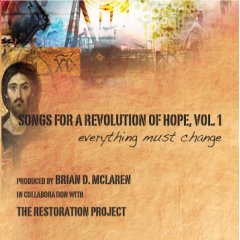 Songs for a Revolution of Hope: Everything Must Change
Songs for a Revolution of Hope: Everything Must Change
Brian McLaren, The Restoration Project & friends
A few years ago, emergent leader and thoughtful theologian and writer Brian McLaren pondered the state of much of contemporary Christian music, especially the praise and worship stuff. Much is okay, perhaps more than some realize, but it is well known that much is overly sentimental, terribly individualistic, nurturing a passion for some glorious experience of God, without the Biblically-required response of sacrificial service, missional engagement, commitment to culturally reformation. Brian wrote an open letter to contemporary Christian artists, inviting conversation around themes of new music, good hymnody, seeker songs and songs for an open-ended journey. The letter, originally published in Worship Leader magazine, encouraged singer-songwriters and worship leaders to create stuff for our listening pleasure and liturgical use, especially as the emergent conversation was increasingly calling for communities who cared about social justice, peacemaking, global concerns.
Many of us, including we here, have been saying this for years. You may know of my own deep appreciation for the old hymns done anew by Indelible Grace and it is hard to beat the folkie Americana groove of these old Puritan lyrics. We love stocking and selling ’em, as well as the solo ones by Matthew Smith, their frontman. As solid and heartfelt as these recordings are, though, rooting listeners (and congregations who use them in public worship) in solid theology, include a space for grief and expression for lament, even these marvelous CDs fail to lead us much into the public ministries of human rights, creation-care, the contemporary struggles for peace and social justice. There is no doubt that we need worship songs that are Biblically faithful, robust, artful. And that help us sing together about the concerns of the 21st century. Brian was right on in his gentle rebuke and his generous invitation to work on this. He reports that he started hearing from worship song leaders from all over the world.
As you may know, McLaren wrote an book called Everything Must Change which carried the thrilling subtitle of Jesus, Global Crisis, and a Revolution of Hope which is now happily out in paperback! Informed by his work in Africa, his long standing concerns about creation care, his reading of thoughtful social ethics and analysis of ideology such as that done by neo-Calvinist economist Bob Goudzwaard, and his friendship with Sojourners leader Jim Wallis, and Red Letter Christian Tony Campolo, McLaren asks, in EMC, the biggest questions about our time and ponders a faithfully Biblical, Christian response. We liked the book quite a lot and have been eagerly promoting it as best we can. Not everyone who has followed the postmodern turn and the emergent movement’s call to reach out to younger, disaffected post-evangelicals have followed Brian in this shift to post-colonial, Kingdom thinking. Still, it is clear that this conversation about global concerns is central to our time. His book captured much about the issues of the day and how a Biblically faithful view of the Risen Christ can help free us from the principalities and powers (he calls it a “suicide machine”) and empower us to frame a new story as we work to bring God’s shalom in the face it all.
Thank God for Tracy Howe (of The Restoration Project) and others who took Brian’s call to new music seriously, who partnered with him, then, to create essentially a soundtrack for the book Everything Must Change. Sung together in his DeepShift EMC tour, the recent album Songs for a Revolution of Hope was written and preformed collaboratively, although is seems that Brian wrote most of the lyrics. (Did you know he cut an album or two of early CCM back in the 70’s? No wonder he quotes such good music, like Bruce Cockburn, in most of his books—he is a guitar player and singer-songwriter himself!)
Songs for a Revolution of Hope is a recording that I love. I have found a few friends that don’t “get it” but I wonder if it is because they don’t quite feel the urgency of the need for new songs, deeper lyrics, songs that address the politics, economics, struggles (personal and social) of our day. That is, their disinterest in the songs may be connected to their disinterest in the topics, which, of course, is rooted in their mis-reading of the Bible. Like Ethan Bryan discovered, who I describe in the earlier review, and his Life Is More album, when one reads McLaren and Jim Wallis, Bob Goudzwaard and Brian Walsh and Sylvia Keesmaat, Desmond Tutu or Wendell Berry, when one “gets” the implications of N.T. Wright’s (and others) understanding of the new creation being birthed in the here and now as Christ’s people serve as salt and light, as we think through the big issues of the day and realize the ways in which Christ’s Kingdom subverts the empires and ideologies of our modern era, we will rediscover in the Bible quite a new worldview. As Brian Mc puts it, we will see a new framing narrative. If we are living within, and out of, that new narrative, that Biblical story, we will need new songs to inspire and give poetic voice to our new yearnings and new visions of transformational ministry.
And so, Songs for a Revolution of Hope is an album full of confessions, laments, songs of political concern, structural change, poems about creation, about joy and pain and hope. There are a few tunes to words written in the middle ages (lyrics by Julian of Norwich, for instance, and a great rendering of a classic Saint Francis prayer about creation, with feisty nylon string guitar-work.) A few are nearly spoken word pieces (think middle-era Bruce Cockburn) and a few are rip-roaring country-folk with rowdy harmonica. Songs of praise include absolutely orthodox Christology, Trinitarian understandings of God, but are set in the context of our human joys, a good creation tarnished by greed, the call to be new kinds of people. It is hard to describe this blend of chants and choruses and worshipful ballads, shaped, as they are, by the full-orbed Kingdom dreams of Brian and his musical gang, plotting goodness, as they say. Check out the chord charts, licensing, and other information at www.songsforarevolutionofhope.com. Learn the songs that cry out the themes of Micah 6:8 or the one that has the powerful ending of multiple voices crying “let your Kingdom come!” Have fun with “Today” or use “Let’s Confess It” as a creative liturgical confession of sin.
There are criticisms I could make—the Gregorian-like chant used on one song (“Chant”) sounds ethereal and otherworldly and while I suppose I appreciate this nod to tradition, to use that styling for an anti-Gnostic hymn like Colossians 1 seems to distract from the this-worldly power of that wonderful ancient Scripture. One song verges on agit-prop when it talks about greedy businessmen and politicians who lie to stay in power, as if they all do. Such cheesy lefty stuff is well intentioned but pate
ntly unhelpful. (And pu-lease, what is that line in an otherwise gorgeous song, about us being agents of progress? Progress? Why not substitute healing, or shalom, or goodness, but anyone who studies the framing narrative of the “suicide machine” knows that from the Enlightenment on, and perhaps before, “progress” was code for humanistic mastery over creation, materialistic, anti-Christian autonomy. Nowadays, it is the mantra of the neo-cons and the cheerleaders for urban sprawl.)
Still, we can take a few sour notes in an experimental, vital, musically interesting, (and lengthy) recording full of relevant (postmodern?) praise and holistic spiritual yearnings. Half of the CCM-produced corporate worship albums have ridiculous lines, stuff that when we sing it in church I say to myself, “well, I just don’t even believe that.” Or I hold my nose thinking it means well, but still smells funny. I do like some of the best of some of the new worship leaders; I love Delirious, for instance, and of course David Crowder; Charlie Hall has some pretty holistic stuff; I know some folks who really like the new Tommy Walker. The mellow me likes the new Michael Card collection of old hymns. But none of those artists are thinking much about social justice, few confess the sins of complicity with a broken social scene. Songs for a Revolution of Hope with its jazzy moments, its flaming mandolin and occasional fiddle, its spoken word edginess, is the kind of album that, if you let it grow on you, can become a soundtrack to living into the new world Christ is birthing in our midst.
Like it all or not, this is a must-have for anybody thinking about the role of music in the emergent churches, or how awareness of embodied justice-seeking spirituality can be integrated into contemporary worship music. Tracy Howe is a true collaborator with Brian on this; she has traveled in the hipster tribal scene like the Enter the Worship Circle folks, knows the rowdy, political band The Psalters and sometimes works with her pals at The Cobalt Season. Her own records can be found at The Restoration Project. She, Latino musicians April and Nuc Vega, Harp 46 and a handful of other friends of McLaren are to be thanked and supported for making this experimental project available. We happily endorse it, highly recommend it. Please let us know if you want to order some—we have a bunch. $15 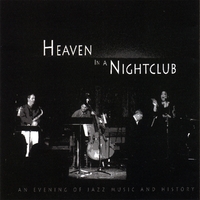 Heaven in a Nightclub
Heaven in a Nightclub
William Edgar, Ruth Naomi Floyd, John Patitucci & friends
I have been wanting to tell about this amazing recording for months now, and have simply not felt capable. The live recording Heaven in a NightClub was the brainchild of Hearts & Minds friend Karl Johnson, director of Ithaca’s Chesterton House, a collegiate study center on the campus of Cornell. It was Karl’s dream to put together an evening of serious jazz performance in a classy New York city club, complete with some conversations about the meaning of it all, set in the (largely unspoken, but hinted at) context of a reformed Biblical worldview, the show illustrating the call to be culture-makers and culture-redeemers. The vision was amazing, really; solid and something with which we, here, of course, would resonate. That we were asked to sell books at the concert made it, well, heaven in a nightclub. What a gig.
The evening went off flawlessly; the hall was splendid, the acoustics rich, folks of all kinds showed up, music was played, God was honored. What some don’t know, though, was that the whole evening was recorded, and a flawless double disc has been released by the Chesteron House. It is a fund-raiser for their Christian study center there at Cornell, and is a great example of the kind of thoughtful elan that Karl represents. Thanks be to God.
Here’s what I can tell you. The host for the evening (who does not appear on the album) was Andy Crouch, whose wonderful, important, if a bit controversial, hardcover book, Culture-Making: Recovering Our Creative Calling will come out in the summer of ’08 on InterVarsity Press. (As a classical pianist himself, Andy was a great emcee, even a bit of a symbol for those with eyes to see, of the evening’s overall hopes and perspective. Doing this kind of stuff—hosting an informative jazz show in Christ’s name–is part of what we the people of God should be about!)
The main jazzman pianist for the show was Westminster Seminary professor, writer, theologian, and cultural critic, Dr. William Edgar. Anyone who has heard Bill lecture–say, at the annual Jonathan Edwards Institute conferences—-know that he plays a very mean piano, all styles, but mostly jazz, ragtime, blues, stride, and such. Man, can that guy play; he insists it is most a hobby, an avocation for a stuffy Calvinist seminary prof. Well, he sure tickles the ivories like a master, and his knowledge of the music, its heart and soul, gives him an extra bit of insight: I am confident that Bill knows and feels what this music is about. He is talented with the chops, and he is solidly immersed in the story the music tells, the story of which it is a part. That came out just remarkably as he explains the songs, tells anecdotes to introduce them, reminds the listeners of the point of jazz, gospel, blues. A-men. As the amazing book by Dr. Jeremy Begbie puts it, this is Resounding Truth: Christian Wisdom in the World of Music. The weighty and beautiful book, by the way, cites Bill Edgar.
The bass player for the evening was the world-renowned, Grammy-award winning John Patitucci. Anybody who follows instrumental music or the contemporary jazz scene knows Patitucci. (That he is a PCA deacon may not be as well known…his pastor is a Hearts & Minds friend so we feel somehow distantly connected ourselves, happy to know this famous artist is a brother in Christ.) I clearly am not a jazz connoisseur, and am even less aware of the intricacies of the electric or upright bass; I might even admit I’m not fond of any overstatement of the instrument. But holy moly, when Edgar sets him up for his requisite solo, he just blazes, just plays the most amazing dark and smooth and deep notes. The audience was stunned, and broke into spontaneous applause that honored this amazing virtuoso. When Bill jams around the Westminster café, I bet he doesn’t have that kind of award-winning bassist with him. It makes for a very cool album, with some really, really deep grooves.
Edgar’s jazz improvisations do, though, often have an absolutely stunning female vocalist with him, and the renowned Ruth Naomi Floyd traveled with him to perform in the Heaven in a Nightclub show. They play together often in the Philly area, and Ms Floyd is very highly regarded as one of the best jazz singers of our time. In NYC, when she sang, they mostly did jazzed-up versions of old black spirituals. As Edgar explained the context and importance of these songs, briefly, he sounded like some brilliant Reformed griot, talking of common grace and black theology, drawing on insights as deep as James Wendell Johnson or his contemporary friend Carl Ellis, author of Free at Last?. Edgar explained the hidden anti-slavery and deeply spiritual meanings of many of the old tunes, and showed how, in reworking them into a jazz setting, th
ey kept the freedom story alive. With Ruth belting, breathy and low at times, full-throated obbligato in high register, yet again, scat singing all over the charts, she stole the show. To hear this African American treasure singing with Dr. Edgar, Christian author and theologian, jamming the keys to keep up, my, oh my, oh my.
Of course there was a sax player—-and what a jazz player he is! Joe Salzano is apparently highly regarded, hails from the old school jazz scene in Rochester, and has played with tons of famous headliners (like Joe Sample!) Man, the cat did some serious blowing. (I’m trying to sound like I know what I’m talkin’ about here…it’s a stretch, I admit, but I’m tellin’ ya the dude testified on that thing.) I cannot presume to tell you what was good about his horn work, only that it was powerful and an excellent edition to the combo (it was not in the foreground, usually, though, and a bit understated, I think.) Salzano has quite a testimony, himself, and was a vital part of the event.
Heaven in a Nightclub is a rare recording of a rare summer evening, educational, inspiring, and tons of fun—it moved some tears and was called “beyond spectacular” by one participant. If you don’t like jazz much, or don’t own much traditional African American music (older spirituals, say) this is a must-have addition for a well-balanced CD collection. If you just want to be blown away by God’s presence in a jazzy show, if you like the idea of relating faith and the arts, if you want to support even the idea of this great project, please order one. I am confident it will be a blessing to somebody you know, and a good and faithful witness, a great piece of collaboration and improvisation. Not a bad theme for a project that implies that one can find God’s sacred presence, yes, even in a New York nightclub, eh? $24.99 (double CD)
A final, sad note (not an inappropriate closing remark for a recording that traces the sad history of African Americans and the role of blues and jazz. The album is dedicated to a dear friend of ours, a good colleague of Chesterton House, Christian Anible, who died last year of cancer. Christian worked in ministry with grad students and faculty at Cornell, was a guitarist himself, a rare PCA peace activist. Many miss him, and the last time he and I spoke, we talked about this upcoming project. I am glad that his name is mentioned in the liner notes.) The proceeds carry on the work of the Chesterton House, their new collaboration with the CCO, and, in this way, carries on the spirit of Christian’s work. Thanks.


